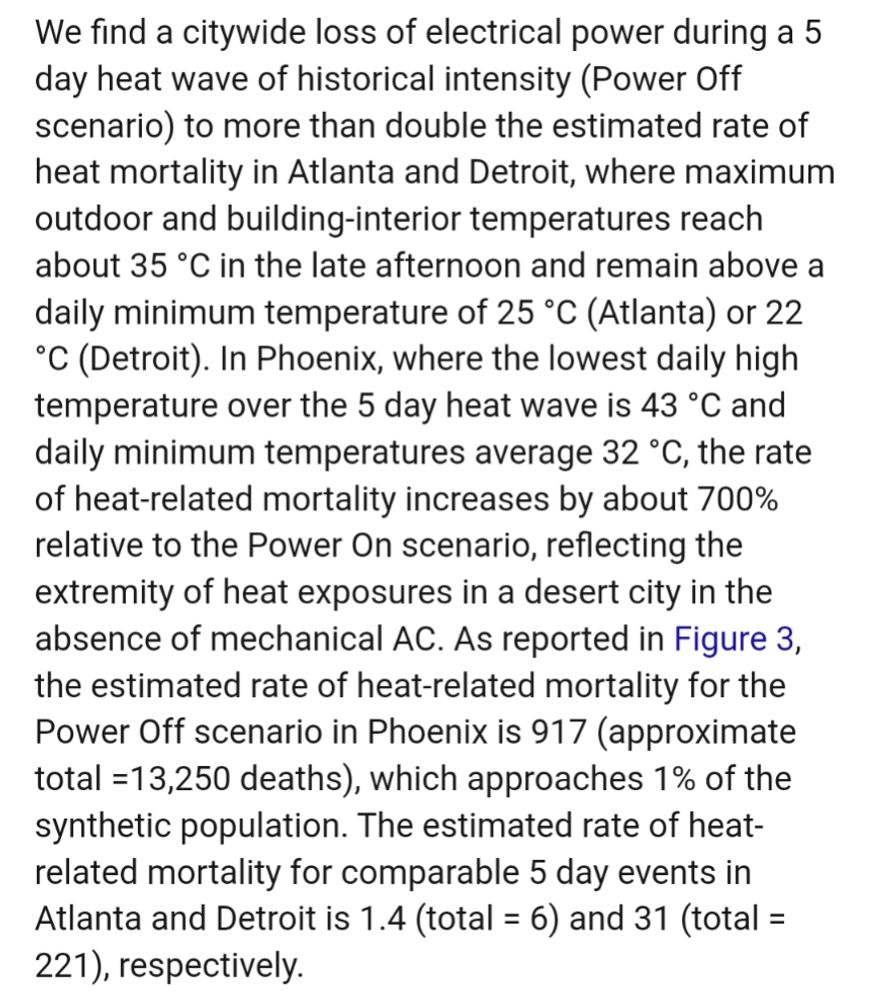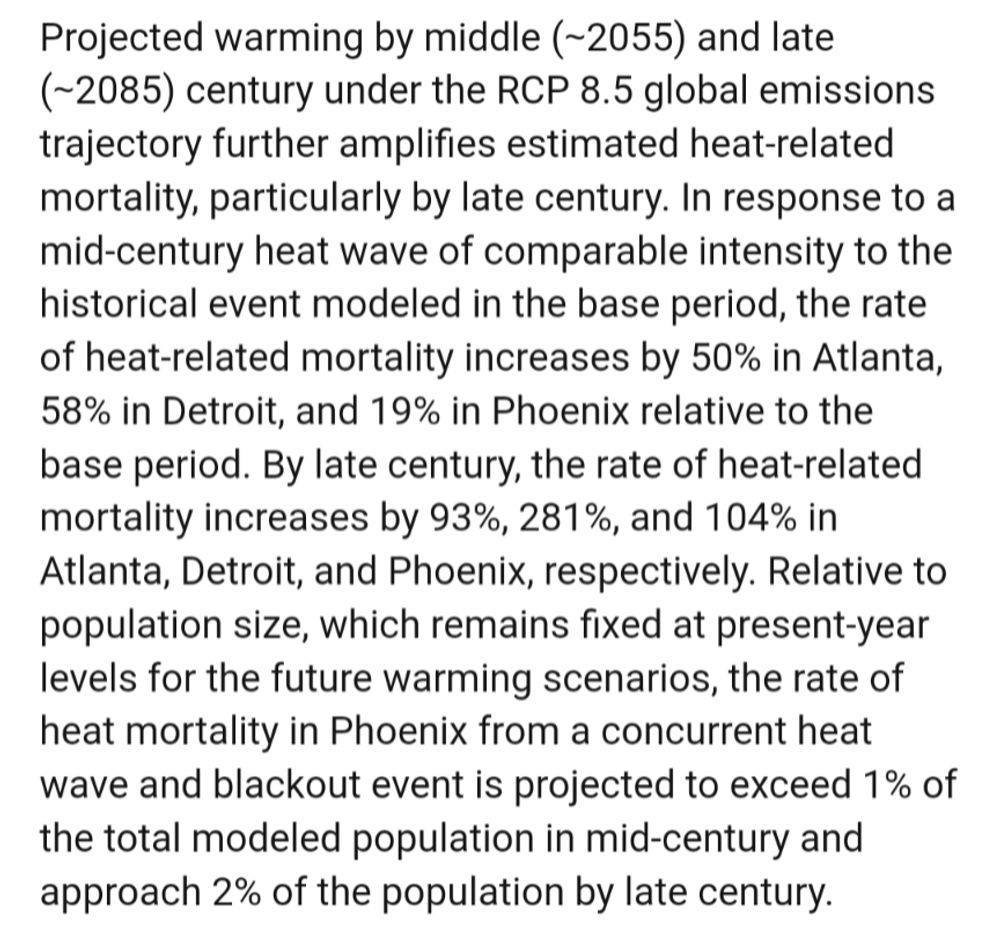Author: tkovach.bsky.social (did:plc:wvyq44vfj3m3mkw3slpr4lrf)
Collections
Record🤔
cid:
"bafyreibbcsfu6h4l6qs6fddecvnxxssixrixdikwpllja6ilwopki6k6ba"
value:
text:
"There's been coverage of research on the worst case scenario of a major heat wave + a prolonged power outage in Phoenix. What's been less covered is that same study estimated the impact of a similar catastrophe on Detroit. The results are grim and getting grimmer pubs.acs.org/doi/10.1021/..."
$type:
"app.bsky.feed.post"
embed:
$type:
"app.bsky.embed.recordWithMedia"
media:
$type:
"app.bsky.embed.images"
images:
alt:
"We find a citywide loss of electrical power during a 5 day heat wave of historical intensity (Power Off scenario) to more than double the estimated rate of heat mortality in Atlanta and Detroit, where maximum outdoor and building-interior temperatures reach about 35 °C in the late afternoon and remain above a daily minimum temperature of 25 °C (Atlanta) or 22 °C (Detroit). In Phoenix, where the lowest daily high temperature over the 5 day heat wave is 43 °C and daily minimum temperatures average 32 °C, the rate of heat-related mortality increases by about 700% relative to the Power On scenario, reflecting the extremity of heat exposures in a desert city in the absence of mechanical AC. As reported in Figure 3, the estimated rate of heat-related mortality for the Power Off scenario in Phoenix is 917 (approximate total =13,250 deaths), which approaches 1% of the synthetic population. The estimated rate of heat-related mortality for comparable 5 day events in Atlanta and Detroit is 1.4 (t"
image:
View blob content
$type:
"blob"
mimeType:
"image/jpeg"
size:
356784
aspectRatio:
width:
863
height:
989
alt:
"Projected warming by middle (∼2055) and late (∼2085) century under the RCP 8.5 global emissions trajectory further amplifies estimated heat-related mortality, particularly by late century. In response to a mid-century heat wave of comparable intensity to the historical event modeled in the base period, the rate of heat-related mortality increases by 50% in Atlanta, 58% in Detroit, and 19% in Phoenix relative to the base period. By late century, the rate of heat-related mortality increases by 93%, 281%, and 104% in Atlanta, Detroit, and Phoenix, respectively. Relative to population size, which remains fixed at present-year levels for the future warming scenarios, the rate of heat mortality in Phoenix from a concurrent heat wave and blackout event is projected to exceed 1% of the total modeled population in mid-century and approach 2% of the population by late century."
image:
View blob content
$type:
"blob"
mimeType:
"image/jpeg"
size:
298396
aspectRatio:
width:
864
height:
813
record:
$type:
"app.bsky.embed.record"
record:
cid:
"bafyreiehlsparmljuibuxbvgc46tdfzsrvyw3adtxgtjdkg4th5eosuusy"
langs:
"en"
facets:
index:
byteEnd:
294
byteStart:
266
features:
$type:
"app.bsky.richtext.facet#link"
createdAt:
"2024-09-03T02:23:48.754Z"

